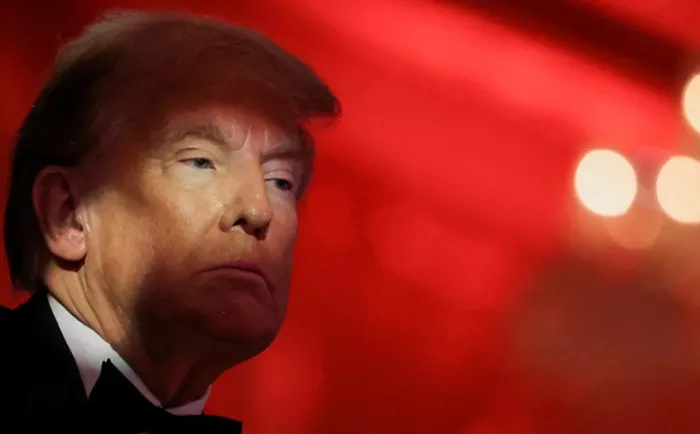President-elect Donald Trump has announced plans to impose significant tariffs on imports from Mexico, Canada, and China starting on his first day in office. This move is part of his strategy to tackle illegal immigration and drug trafficking, particularly fentanyl, entering the United States.
In a post on his Truth Social platform, Trump stated he would implement a **25% tariff** on all goods from Mexico and Canada, along with a **10% tariff** on products from China. He emphasized that these tariffs would remain until these countries take effective measures to stop the flow of drugs and migrants into the U.S. “They need to pay a very big price,” Trump declared.
Economic analysts warn that these tariffs could lead to increased prices for American consumers. A report from Goldman Sachs predicts that Trump’s proposed tariffs could raise inflation by nearly **0.9%**, affecting everyday items such as shoes and groceries. Matt Priest, president of the Footwear Distributors & Retailers of America, cautioned that the tariffs would directly increase costs for retailers and consumers.
Trump’s approach mirrors tactics used during his first term, where he often threatened tariffs to negotiate better terms with foreign nations. For instance, in 2019, threats of tariffs prompted Mexico to agree to the “remain in Mexico” policy for asylum seekers. However, during his previous presidency, some proposed tariffs were ultimately not enforced.
The potential impact of these new tariffs raises concerns among business leaders and economists. Industries such as automotive manufacturing and agriculture could face disruptions due to the interconnected nature of North American supply chains. Canadian Prime Minister Justin Trudeau and Mexican President Claudia Sheinbaum have both expressed opposition to Trump’s plans, warning that retaliatory tariffs could follow.
Sheinbaum stated that imposing tariffs would not solve the issues of migration or drug trafficking and could lead to job losses in both countries. Trudeau emphasized the importance of collaboration between Canada and the U.S., particularly regarding border management.
Trump’s announcement comes as he aims to renegotiate trade agreements like the US-Mexico-Canada Agreement (USMCA), which requires renewal by July 2026. His administration is expected to seek changes to this deal as part of its broader trade strategy.
As Trump prepares for his inauguration on January 20, 2025, he is expected to push forward with these tariff plans despite potential economic repercussions for American consumers and businesses.
Related topics:
- Nelson Chamber Voices Concerns Over Federal Immigration Cuts
- New Visa Rules for Colombian Visitors Start Today, Ukraine Scheme
- Exploring the Role of Temporary Foreign Workers in Canada: Key Insights


